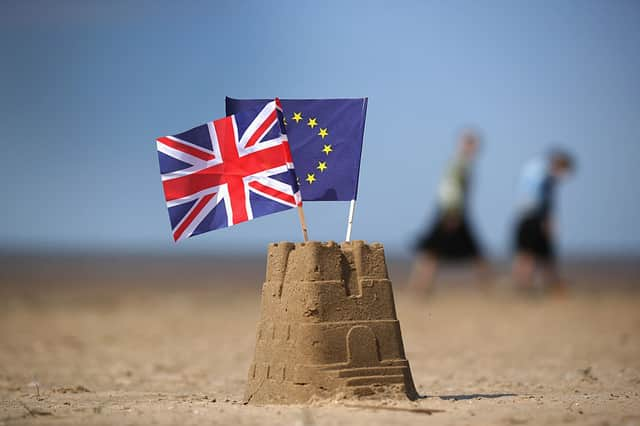Here's how the rights of EU residents will be affected during and after the Brexit transition period


Many EU nationals living in the UK have been here for years, some intending to remain in the UK indefinitely, having secured a job and started a family.
There are around 3.5 million EU nationals living in the UK as of summer 2018, and that figure includes about 600,000 children.
Advertisement
Hide AdAdvertisement
Hide AdSo what does Brexit mean for you if you are an EU national in the UK?


Here's everything you need to know:
What does Brexit mean for EU citizens living in the UK?
In short, when Britain leaves the EU on 31 January, not much changes for at least a year or so.
That's because under the terms of the Withdrawal Agreement, the UK will enter a transitional period during which time the UK will abide by EU rules despite no longer being a member.
The transition period is currently scheduled to end on 31 December 2020, which was the date agreed by former prime minister Theresa May.
Advertisement
Hide AdAdvertisement
Hide AdThe transition can, however, be extended once by up to two years, if the UK and EU jointly decide to do so before 1 July 2020.
Under the Withdrawal Agreement deal, EU nationals in the UK and Britons in the EU – and their family members – will retain residency and social security rights after Brexit.
Freedom to move and live within the EU and UK will continue during the transition period, and if you are from the EU and have lived in the UK permanently for five years by the end of the transition period, you will be able to continue to reside in the UK permanently.
So I don't need to do anything?
In most cases you will still have to apply for your new residence status.
That applies even if:
Advertisement
Hide AdAdvertisement
Hide AdYou were born in the UK but are not a British citizenYou have a UK ‘permanent residence document’You are family member of an EU citizen who does not need to apply - including if they’re from IrelandYou are an EU citizen with a British citizen family member
You'll need to apply through the EU settlement scheme, a scheme that allows EU, EEA or Swiss citizens who are living in the UK to request permission to keep living in the country after Brexit.
(The EEA includes EU countries and also Iceland, Liechtenstein and Norway)
Gov.uk explains that except in a few cases, you need to apply if you’re living in the UK but you are:
Advertisement
Hide Ad